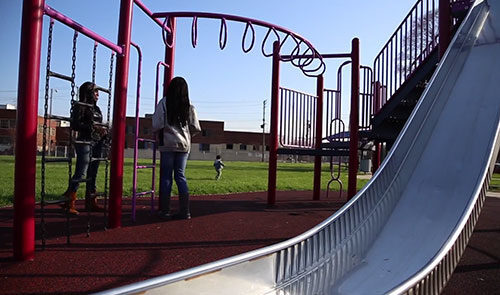Focus HOPE + Graham Sustainability Institute In 2011, the Detroit civil and human rights organization Focus: HOPE expressed interest in working with the University of Michigan to determine how to…
-
March 6, 2015
Lightweight Metals Institute opens in Detroit
A new $148 million lightweight metals manufacturing institute called the Lightweight Innovations for Tomorrow (LIFT) Consortium opened in January 2015 in the Corktown neighborhood of Detroit.
-
March 6, 2015
Fostering Talent in Detroit
Quicken Loans, the nation’s largest online retail mortgage lender and the fourth largest retail home lender in the United States, is known as a Detroit corporate powerhouse.
-
March 6, 2015
Innovating Detroit
The University of Michigan’s Ross School of Business annual Impact Challenge is considered one of the most ambitious and immersive leadership development programs of its kind for business school students.
-
March 6, 2015
Saving Detroit Hearts
The Healthy Environments Partnership (HEP), established in 2000, brings together Detroit-based community organizations.
-
March 6, 2015
Creating Good Neighborhoods
The Technical Assistance Center (TAC) is dedicated to establishing and promoting socially just communities, and deploys its interventions to support Detroit residents and stakeholders as they work to strengthen and improve their neighborhoods.
-
March 6, 2015
Launching a Maker Space in Detroit
Students and faculty at the Penny W. Stamps School of Art & Design are working with a neighborhood alliance in Detroit to launch an incubator for creative enterprises and a community space for developing skills.
-
March 5, 2015
Afterhouse: Bringing hope to a Detroit neighborhood
In a Detroit neighborhood shared by Bangladeshi, Polish immigrants, longtime African-American residents and young artists, something is happening.
-
March 5, 2015
Finding Solutions for Detroit
In her book “Redevelopment and Race: Planning a Finer City in Postwar Detroit,” U-M Professor June Manning Thomas explores what went wrong, demonstrating how and why government programs were ineffective and even destructive to community needs.


